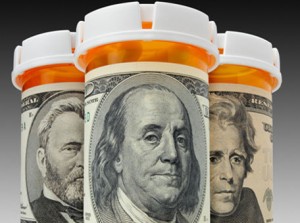Last year, about 61,000 Medicare beneficiaries in South Carolina hit the “donut hole” — the gap in prescription drug coverage in Medicare Part D — and as a result received no help with the cost of their medications.
That’s what happened to 72-year-old Mary Edna Crider of St. Matthews, SC. And it wasn’t the first time.
Crider, who has diabetes and suffers from a heart condition, said last year she hit the donut hole in early summer. “This year we were into it by April,” she said.
“I take a good bit of medication,” she said, and estimates they cost between $700-$800 a month. “My husband gets a good retirement check, but we have other expenses and the money doesn’t go that far. We get by.”
Crider will be among Medicare beneficiaries who, beginning this week, will receive a $250 rebate check in the mail from the government as part of the new health care law. “I think it’s good,” she said. “I’ll put it up to buy medicine.”
Medicare enrollees pay 25 percent of their prescription drug costs until the total reaches $2,830 for the year. Then they fall into the coverage gap known as the “donut hole” and have to pay a total of $4,550 in out-of-pocket prescription drug expenses before the plan resumes paying nearly 100 percent of drug costs. Some 4 million seniors will be in the donut hole this year, and will become eligible to receive rebate checks.
The rebate checks are the first of several provisions of the new law that will affect seniors. Throughout the rest of the year, seniors across the country will receive checks as they enter the coverage gap. The law will close the gap over the next 10 years, cutting the donut hole in half by 2011 and eliminating it entirely in 2020.
“The new health care law offers lots of benefits for seniors,” said Julie Harbin, President of the South Carolina Alliance for Retired Americans. “It stops overpayments to private Medicare Advantage insurance companies that have made huge profits while causing millions of Americans to pay higher monthly premiums for their Medicare coverage.”
The law also protects nursing home residents against elder abuse and neglect, and it prevents discrimination against early retirees by health insurance companies.
Crider hopes the health care reforms help the people she sees at the drug store. “Bless their hearts, some of them don’t have enough money to buy a full prescription, but the pharmacy won’t let them buy half. I’d go out of business working there. I’d be giving people what they need.”
While Crider has not had to go without her medications, she isn’t above asking her doctor for free samples. As she says, every little bit helps.
For more about the South Carolina Alliance for Retired Americans, call 803-957-8740 or email scalliance@mindspring.com.


This is very good news for senior citizens. New medicare plans are really shocking senior citizens.